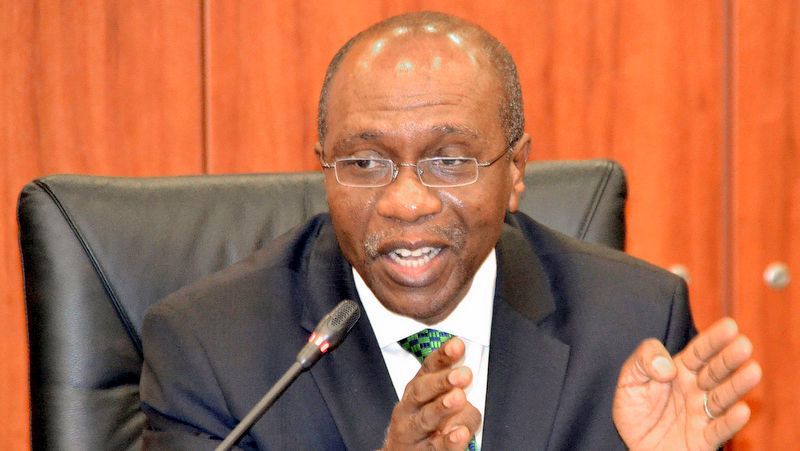Market forces may soon drive down interest rates and yields on fixed income securities in the short-term researchers at FSDH have predicted.
This prediction is based on improvement in a number of factors that had hitherto depressed the Nigerian economy. FSDH researchers in a note acknowledge that factors, including high inflation, weak exchange rate and production cuts as occasioned by militancy in the Niger-Delta region, had contributed to higher risks in the Nigerian economy.
According to the report, the yield on the 364-Day Nigerian Treasury Bills (NTBs) has been on the increase since January 2016 because of increased risks in the Nigerian economy. However, recent developments show that confidence is returning to the Nigerian economy and the risks are waning.
“These developments may pave way for a drop in interest rate and yield in the short-term,” the report said.
Relying on the latest purchasing managers’ index (PMI) published by the Central Bank of Nigeria (CBN) and the inflation figures published by the National Bureau of Statistics (NBS) as well as the restoration of peace in the Niger-Delta region, the researchers predict a reduction in the cost of borrowing and returns on government papers.
The cost of issuing Nigerian treasury bills (NTBs) has soared to the benefit of the commercial banks (the main buyers). Since August 2016, the yields on the 364-day paper at auction have settled above 22% (and more than doubled over 12 months), which has soared the nation’s debt service liabilities.
Total debt service in the 2016 budget represented a projected 35.4% of total FGN revenue. The ratio was so dire, of course, because the record of revenue collection has been poor. In practice, collection was even poorer than forecast and the actual ratio was above 60%.
The FGN’s domestic debt stock amounted to N11.97trn (US$39.2bn) at end-March, 2017 equivalent to 11.7% of 2016 GDP, which has been considered very healthy for a sovereign rated B+/B and projected to remain so when the unrecorded debts of N2.2trn of the FGN the administration unearthed in mid-December are taking into consideration, according to analysts
The latest Purchasing Managers’ Index (PMI) that the Central Bank of Nigeria (CBN) published for the month of May 2017 shows that substantial investment is taking place in the economy.
The CBN’s PMI report shows that the Composite Manufacturing Index (CMI) expanded for the second consecutive month in the year 2017 and attained the highest level since March 2015. The CMI increased to 52.5 points in May 2017 from 51.1 points in April 2017. The Composite Non-Manufacturing Index (CNMI) also expanded to 52.7 points in May 2017 from 49.5 points in April 2017.
The month of May marked the first time the CMI has exceeded the 50 points baseline since January 2016. The PMI report also shows that the production level in the Manufacturing sector expanded for the third consecutive month, increasing to 58.7 points in May 2017 from 58.5 points in April 2017.
A PMI below 50 points level suggests a decline in business activity while a PMI higher than 50 points level suggests an expansion. When the PMI is at the 50 point level, it means that the degree of business activity in the economy is unchanged.
Also, the Q1, 2017 foreign trade data from the National Bureau of Statistics (NBS) on the Nigerian economy show significant growth compared with the corresponding period in 2016.
Total trade increased to N5.29trillion in Q1, 2017 from N3.13trillion in Q1, 2016, representing growth of 69.14%. Exports contributed 56.8% to total trade and increased to N3.01trillion in Q1, 2017 from N1.44trillion recorded in Q1, 2016. Imports grew to N2.29trillion in Q1, 2017 from N1.69trillion in Q1, 2016 representing growth of 35.20%.
Consequently, Nigeria recorded a favourable trade balance of N719.38billion in Q1, 2017 from a trade deficit of N253.33billion in Q1, 2016.
Both Crude Oil exports and Non-Crude Oil exports recorded strong growth in Q1, 2017 compared with Q1, 2016. Crude Oil exports increased to N2.38trillion in Q1, 2017 from N1.13trillion in Q1, 2016 representing growth of 110.7%.
Non-Crude Oil exports more than doubled to N629.19billion in Q1, 2017 from N309.75billion in Q1, 2016. The positive growth in the foreign trade statistics resulted in additional foreign exchange inflows for the country, which bolstered the CBN’s ability to support the current stability in the foreign exchange market.
In the same vein, inflation numbers has continued to drop in the last three consecutive months and is expected to drop further in May.
“We expect foreign trade to remain favourable for Nigeria for the rest of 2017. This should support the value of the Naira and reduce the need to maintain high interest rate to defend the exchange rate,” the report concludes.











